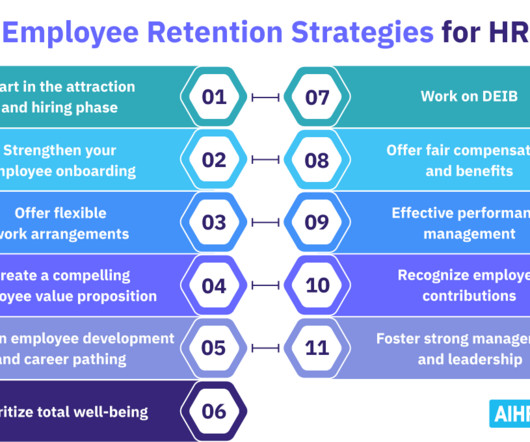Talent Acquisition vs. Recruitment: The Differences and HR’s Key Role
Analytics in HR
APRIL 4, 2023
Talent acquisition is HR’s long-term strategy to attract the best talent to help grow the business. It also impacts employee retention. Talent acquisition also helps in saving time and money. Hiring unsuitable candidates can lead to poor performance and employee turnover.
































Let's personalize your content